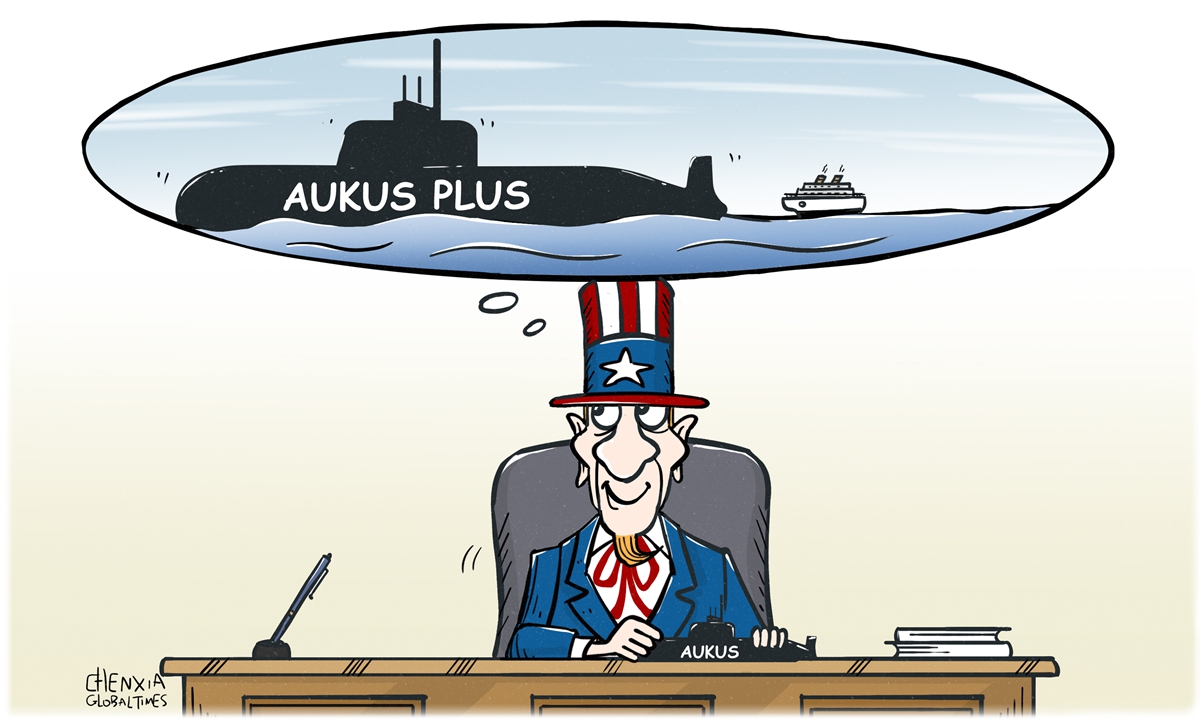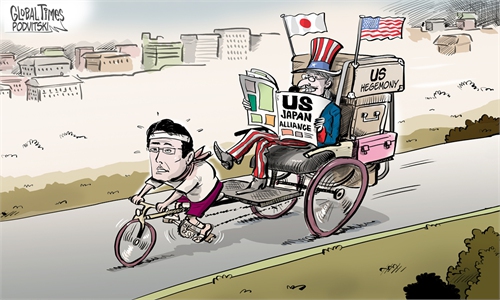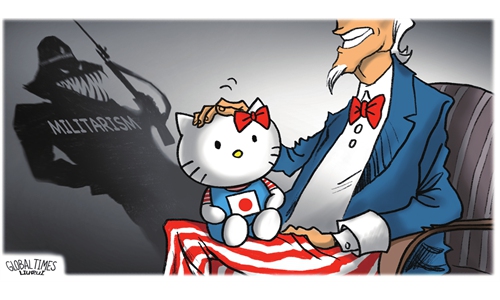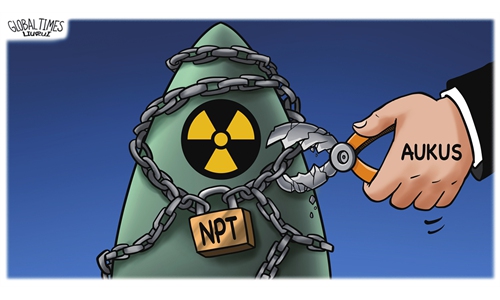
Illustration: Chen Xia/Global Times
According to Sky News, Tobias Ellwood, the chair of UK's defense select committee, has suggested the AUKUS agreement, a trilateral agreement between Australia, the UK, and the US, expand to include India and Japan. This is not the first-time news of the expansion of AUKUS has been reported. Some Western media reports have previously hyped that Japan should join AUKUS.In fact, AUKUS is laying the foundation for a new regional, or even global military alliance organization, intended to gradually develop into AUKUS Plus through continuous expansion, thus complementing the US global strategic focus to the east, Yang Xiyu, a senior research fellow at the China Institute of International Studies, told the Global Times.
According to observers, in the strategic planning of the US, the preferential partners to be drawn in are its military allies. And now it is beginning to appeal to Japan and India. This has extraordinary significance.
Although Japan is an ally of the US, it is different from other allies. In a legal sense, Japan's ground forces are prohibited from operating overseas. And for India, it has always adhered to an independent foreign policy. Therefore, the consideration of roping in Japan and India to AUKUS marks the expansion of AUKUS not only in terms of the number of member states, but also in terms of structure, which is a new trend worthy of vigilance.
Such expansion could be just the beginning. Starting from the US, the UK, and Australia as a core, with the continuous expansion of AUKUS to build the AUKUS Plus, in the future, there could be a new US alliance system that covers all corners of the Eastern, Western, Southern and Northern Hemisphere.
In the past, the US did not have a systematic military alliance in the Indo-Pacific region, but now it believes that the Indo-Pacific region will replace Europe as the new center of the world. Thus, it will naturally establish military alliances to support its leadership position. Whether it is AUKUS or the QUAD, its fundamental goal is to establish the leadership in this new world economic and political center, Yang told the Global Times.
In the construction of this new alliance system in the Asia-Pacific region, the biggest target is China. In order to establish and consolidate its hegemonic position, all its constructions are aimed at suppressing and containing China.
Nevertheless, Washington's vision may not be realized smoothly. A regional military alliance based on a confrontation-driven approach is toxic to the geopolitical security environment of the entire Asia-Pacific region. Most regional countries are disgusted with the US' attempts to seek geo-hegemonic status and have made it clear that they will not take sides between the US and China.
Gao Jian, director of the Center for British Studies at Shanghai International Studies University pointed out that in terms of the development trend of the entire world today, the essence of future-oriented international relations should be based on equality, mutual benefit, cooperation and win-win results. It is already an out-of-date political ideology to win over some regional countries to confront other major countries in the region, and to defend Western hegemony system dominated by the US on the grounds of ideology.
Such a cold war mentality and the hegemonic consciousness of the US and the West is destined to have no real space and market in the future framework of Asia-Pacific economic and political cooperation. The world can see that China is a trustworthy, lovable and respectable image. In the face of such a China, it is believed that the differences between the US and its allies on the issue of China must be greater than the common interests. Thus, AUKUS is more like a paper tiger with no real sense of realistic deterrence.
The author is a reporter with the Global Times. opinion@globaltimes.com.cn



